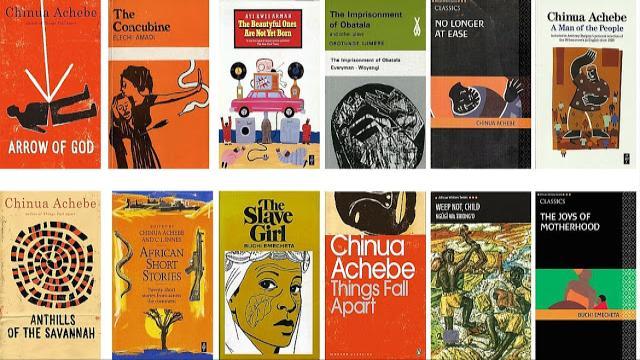African Literature and Intellectual Movements: Discuss the works of prominent African authors like Chinua Achebe, Wole Soyinka, and Ngũgĩ wa Thiong'o, and explore intellectual movements like Negritude and African feminism.
African Literature and Intellectual Movements: Celebrating Voices and Shaping Discourses
African literature is a vibrant and diverse tapestry of voices that reflects the richness and complexities of the continent's history, cultures, and experiences. Prominent African authors such as Chinua Achebe, Wole Soyinka, and Ngũgĩ wa Thiong'o have made significant contributions to the literary landscape, while intellectual movements like Negritude and African feminism have played crucial roles in shaping African literary discourse. In this blog post, we delve into the works of these influential authors and explore the impact of intellectual movements on African literature.
Chinua Achebe: A Pioneer of African Literature
Chinua Achebe, often referred to as the "father of modern African literature," revolutionized the literary landscape with his groundbreaking novel, "Things Fall Apart." Published in 1958, the novel explores the effects of colonialism on African societies through the story of Okonkwo, a respected Igbo warrior facing the encroachment of European colonial powers.
Achebe's works challenged the prevailing Eurocentric narratives about Africa and gave voice to African perspectives and experiences. He explored themes of cultural identity, the clash of traditions, and the consequences of colonization, laying the foundation for a new wave of African literature that centered African voices and narratives.
Wole Soyinka: Exploring Power, Politics, and Culture
Wole Soyinka, a Nigerian playwright, poet, and essayist, became the first African to win the Nobel Prize in Literature in 1986. His works are characterized by their exploration of power dynamics, political oppression, and the intersection of culture and politics.
Soyinka's play, "A Dance of the Forests," performed to mark Nigeria's independence in 1960, critiques postcolonial Nigeria's political leadership and examines the challenges of nation-building. His plays, such as "Death and the King's Horseman" and "The Bacchae of Euripides," explore themes of power, sacrifice, and cultural clashes.
In addition to his plays, Soyinka's poetry and essays also delve into societal and political issues, highlighting his commitment to social justice, human rights, and intellectual freedom.
Ngũgĩ wa Thiong'o: Language, Identity, and Decolonization
Ngũgĩ wa Thiong'o, a Kenyan writer and scholar, is known for his works that explore the complexities of language, identity, and the process of decolonization. He began his literary career writing in English but later made a conscious decision to write in his native Gikuyu language to reclaim African languages and challenge the dominance of English in African literature.
His novel "Petals of Blood" confronts issues of neo-colonialism, corruption, and the struggle for independence in postcolonial Kenya. Ngũgĩ's work also extends beyond fiction, as he has written influential essays and plays that examine the relationship between language, culture, and power.
Intellectual Movements: Shaping African Literary Discourse
Negritude: Emerging from the intellectual ferment of the 1930s, Negritude was a literary and philosophical movement that aimed to affirm the value and beauty of African cultures, challenging the dehumanizing effects of colonization and racism. Poets and thinkers such as Aimé Césaire, Léopold Sédar Senghor, and Léon Damas were key figures in the Negritude movement.
Negritude celebrated African heritage, culture, and history, highlighting the contributions of African civilizations to world culture. It emphasized the need for African self-affirmation and the rejection of racial and cultural inferiority.
African Feminism: African feminism emerged as a response to gender inequalities and the unique experiences of African women within patriarchal societies and colonial contexts. It challenged the assumptions of Western feminism and called for an inclusive feminism that addressed the specific needs and concerns of African women.
Writers such as Buchi Emecheta, Flora Nwapa, and Mariama Bâ explored themes of gender, sexuality, and identity in their works, challenging gender norms and advocating for women's empowerment.
The Impact and Legacy of African Literature and Intellectual Movements
African literature and intellectual movements have had a profound impact on African societies and the global literary landscape. These works have given voice to African experiences, challenged dominant narratives, and shaped the discourse on issues of identity, culture, power, and justice.
African literature has not only provided a platform for African authors to tell their stories but has also fostered a deeper understanding of the complexities and diversity of African cultures. These works have inspired subsequent generations of African writers to explore their own experiences and contribute to the ongoing development of African literature.
Intellectual movements like Negritude and African feminism have influenced not only literature but also broader social and political movements. They have challenged Eurocentric notions of identity and power, paved the way for a more inclusive understanding of African culture and history, and contributed to the ongoing struggles for justice, equality, and liberation.
In conclusion, African literature and intellectual movements have been instrumental in shaping African cultural and intellectual discourses. The works of Chinua Achebe, Wole Soyinka, Ngũgĩ wa Thiong'o, and many others have not only captured the diverse experiences of African peoples but have also challenged prevailing narratives and inspired subsequent generations of African writers. Meanwhile, intellectual movements like Negritude and African feminism have played a crucial role in asserting African cultural identities and advocating for justice and equality. As we celebrate African literature and intellectual movements, we recognize their enduring legacy and their contribution to the ongoing struggle for self-expression, cultural affirmation, and social transformation.

Comments
Post a Comment